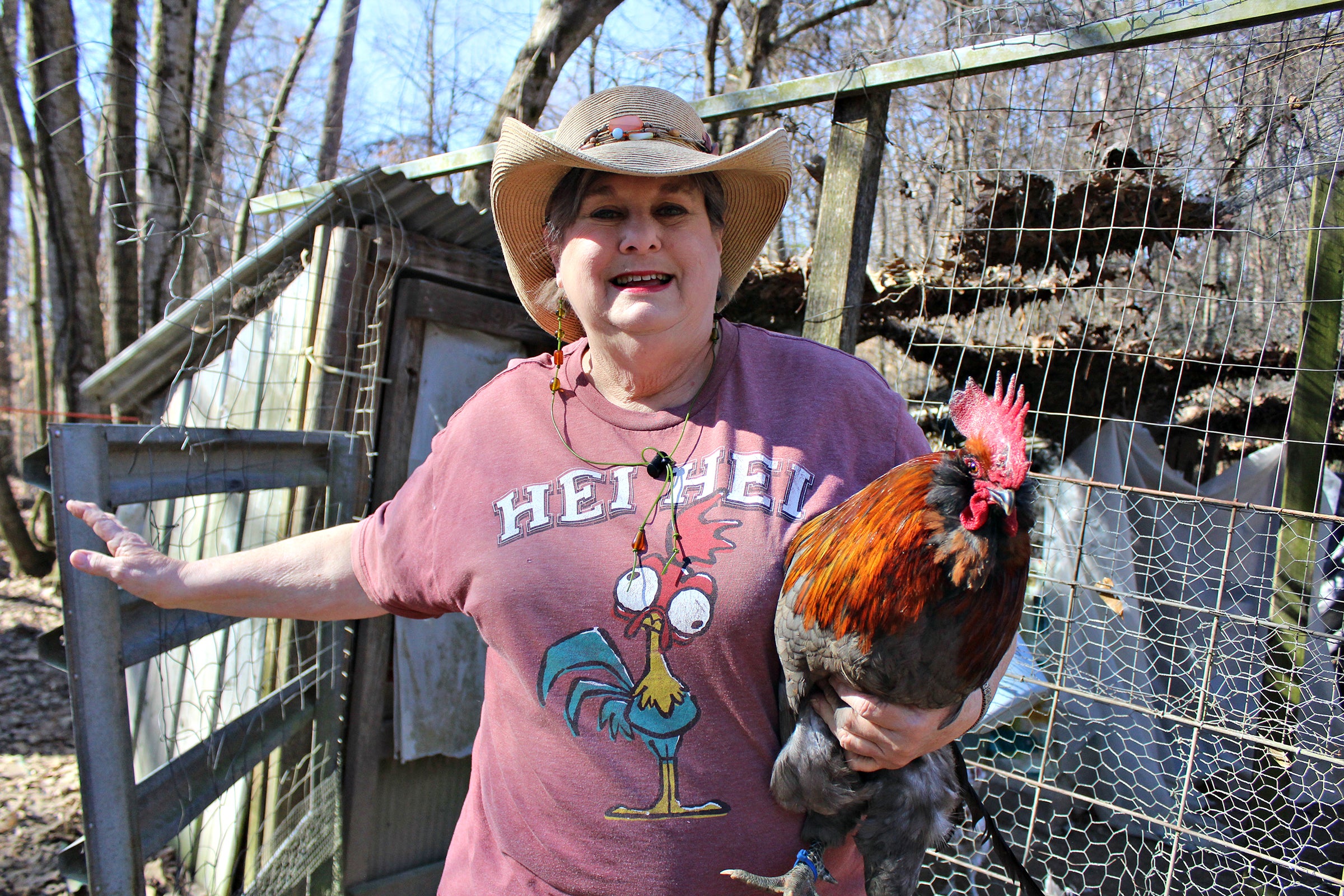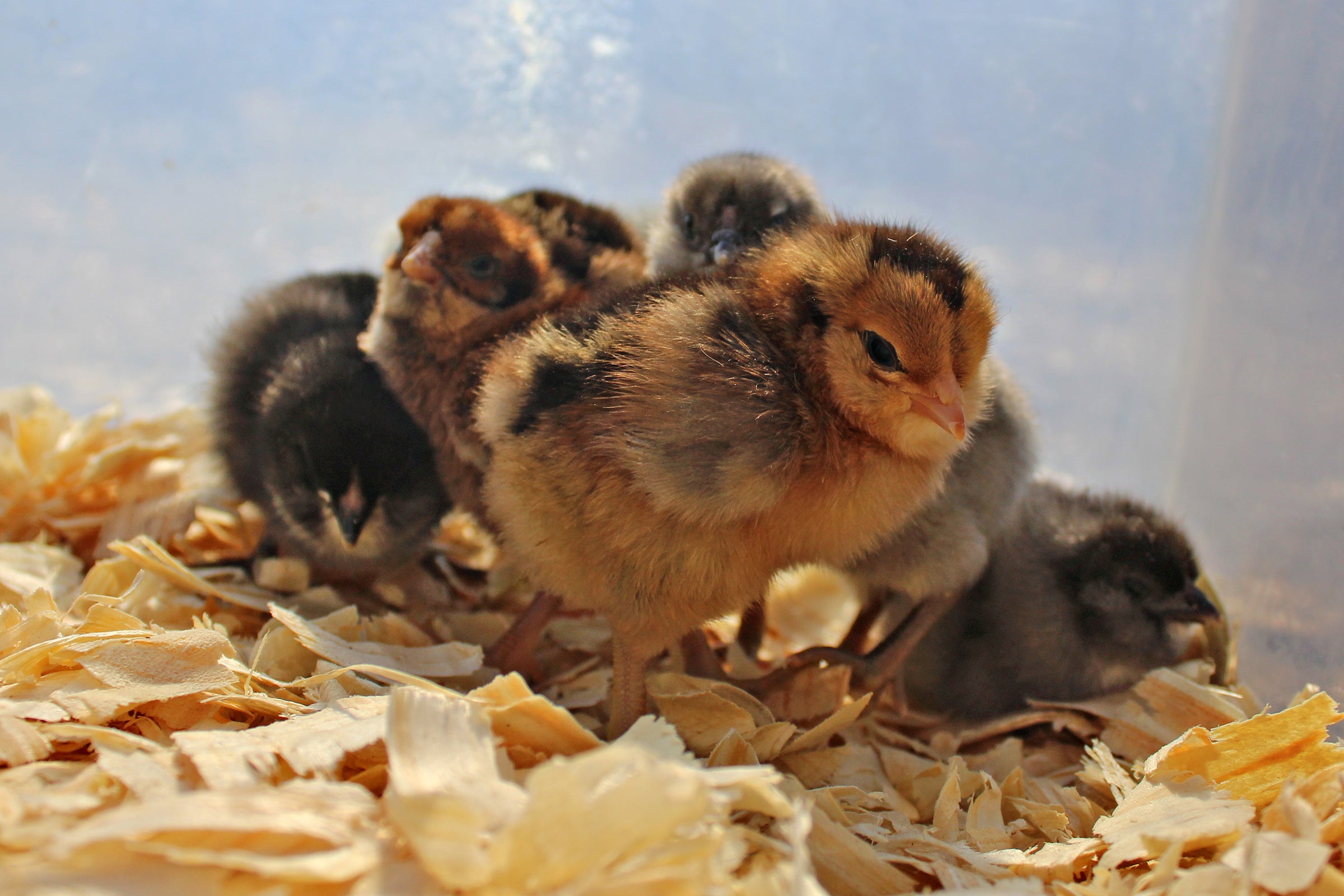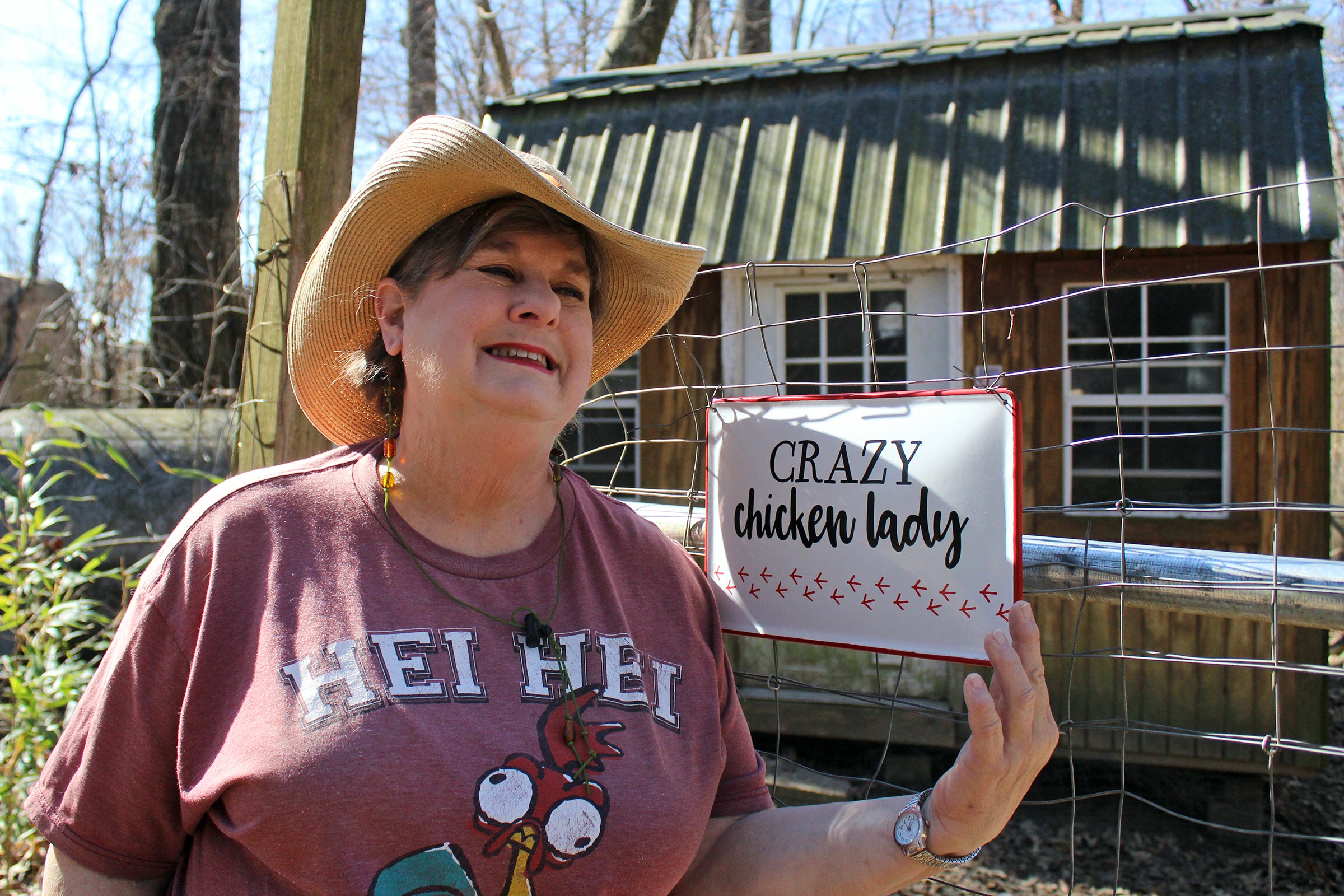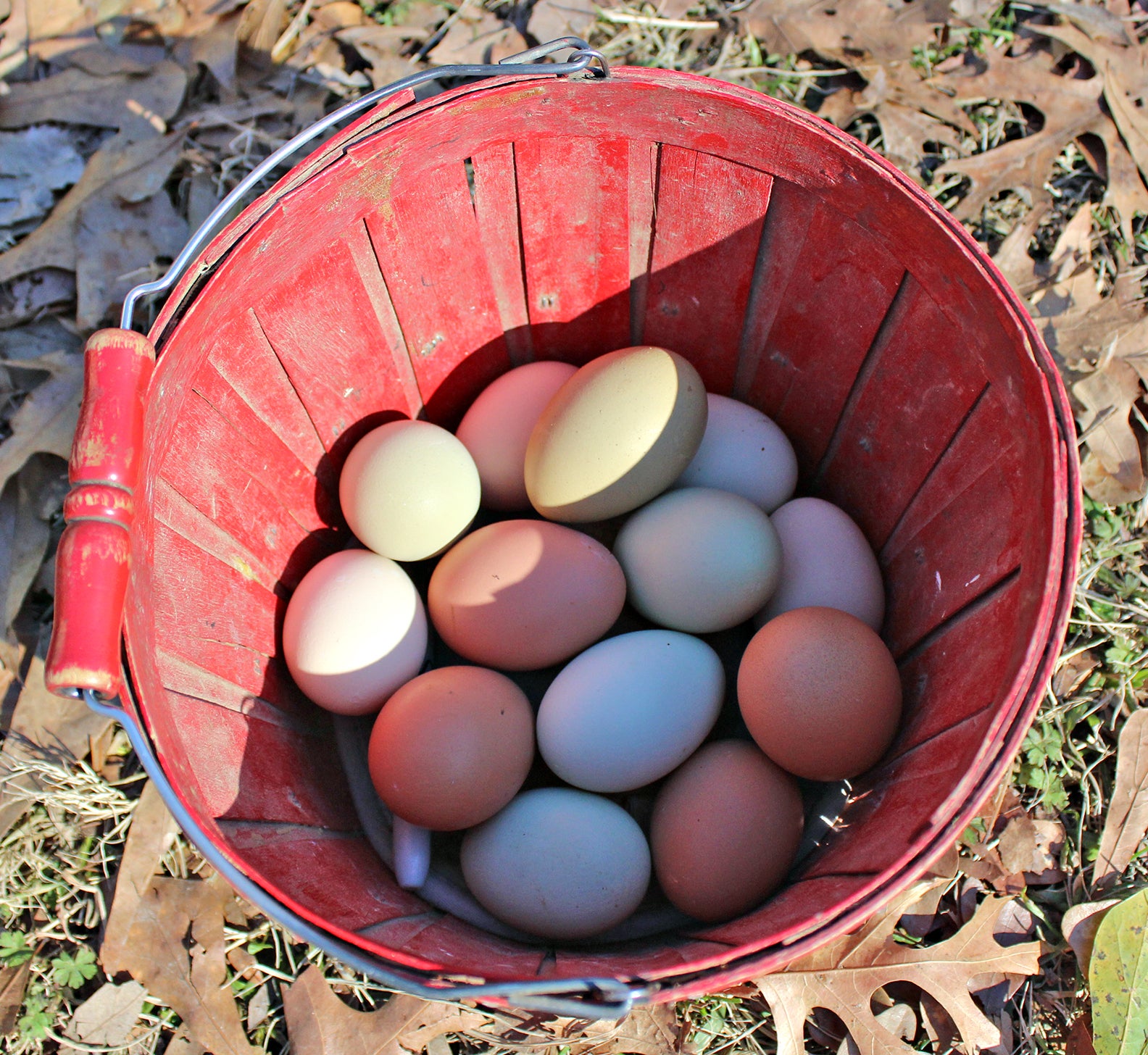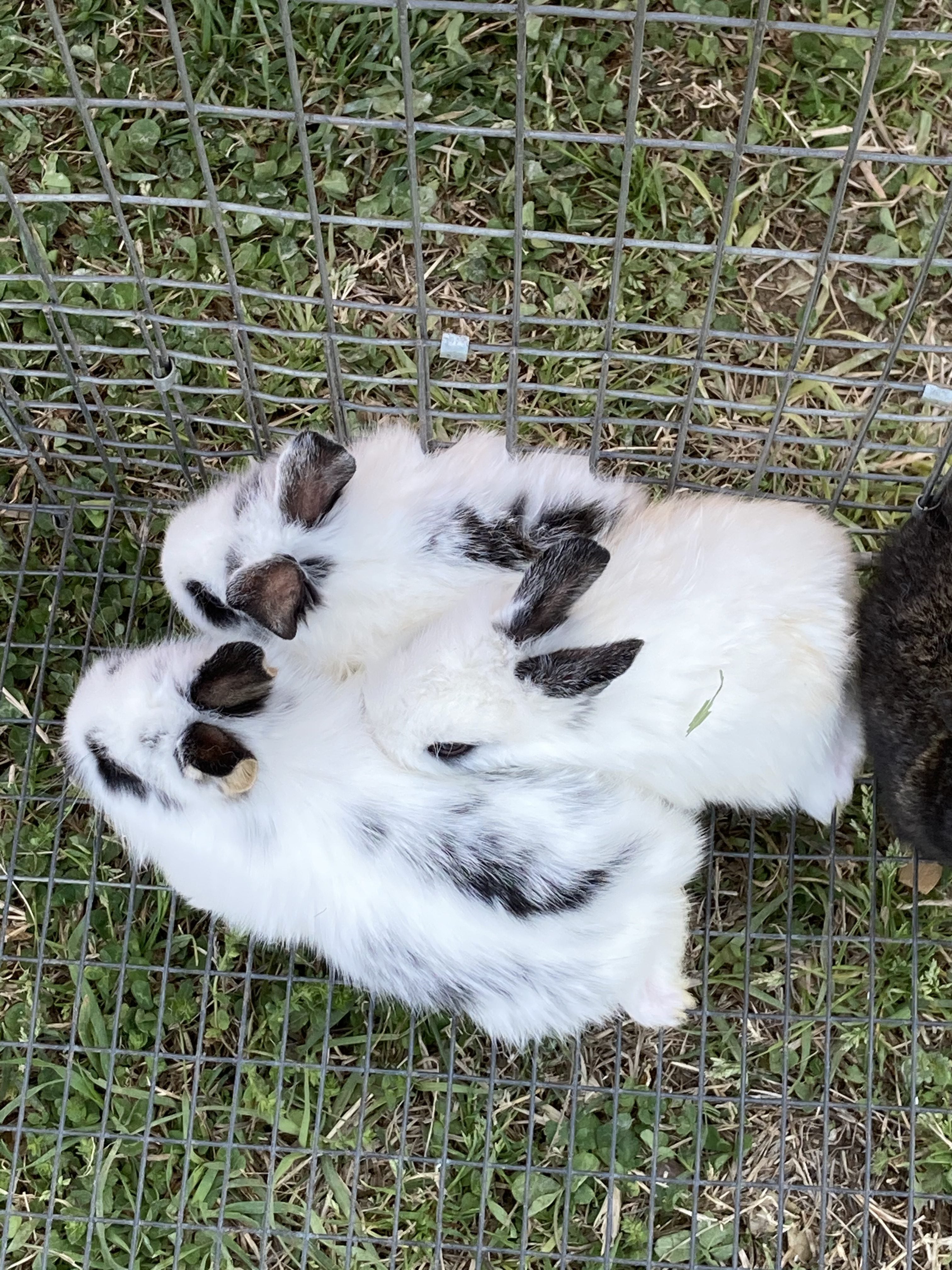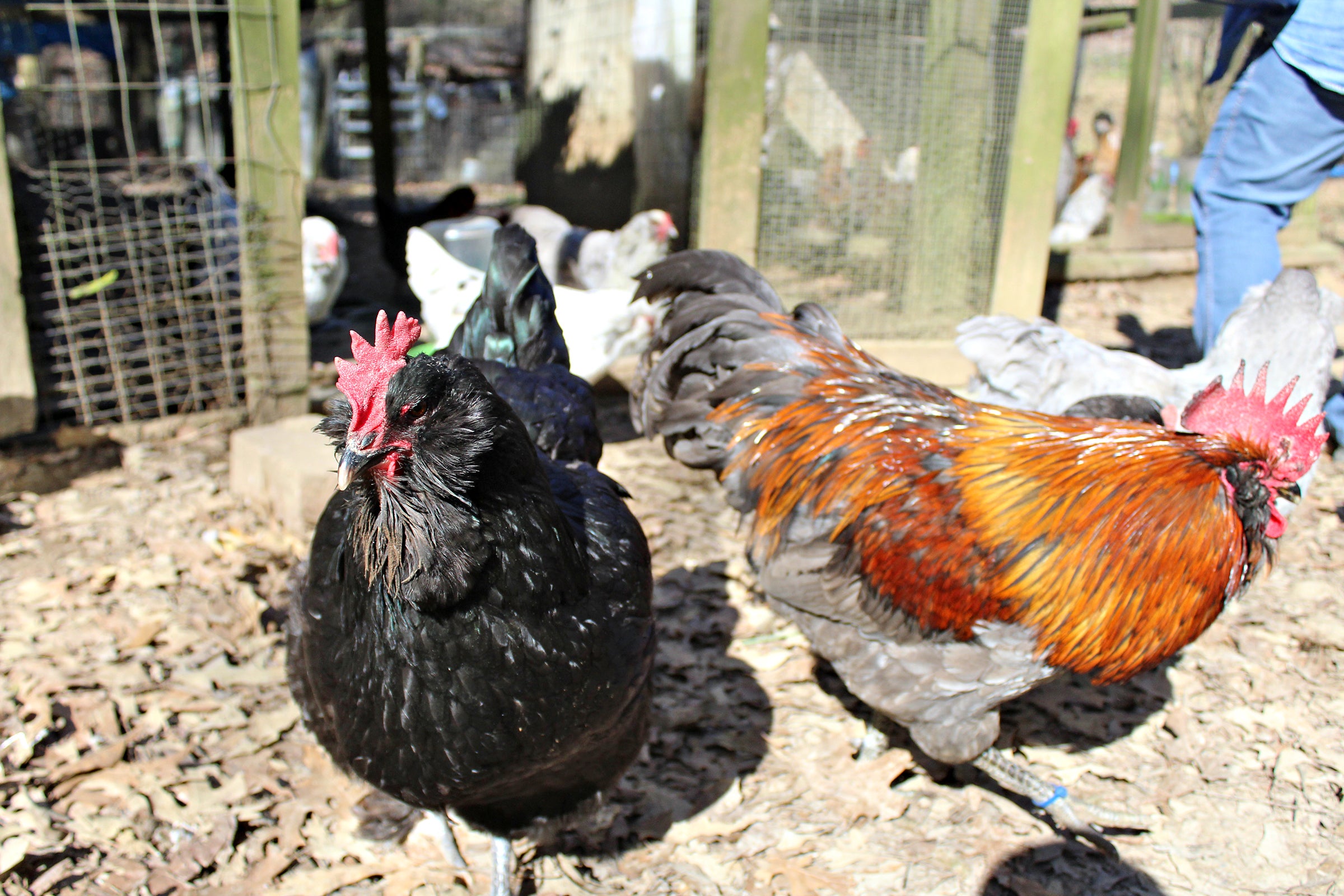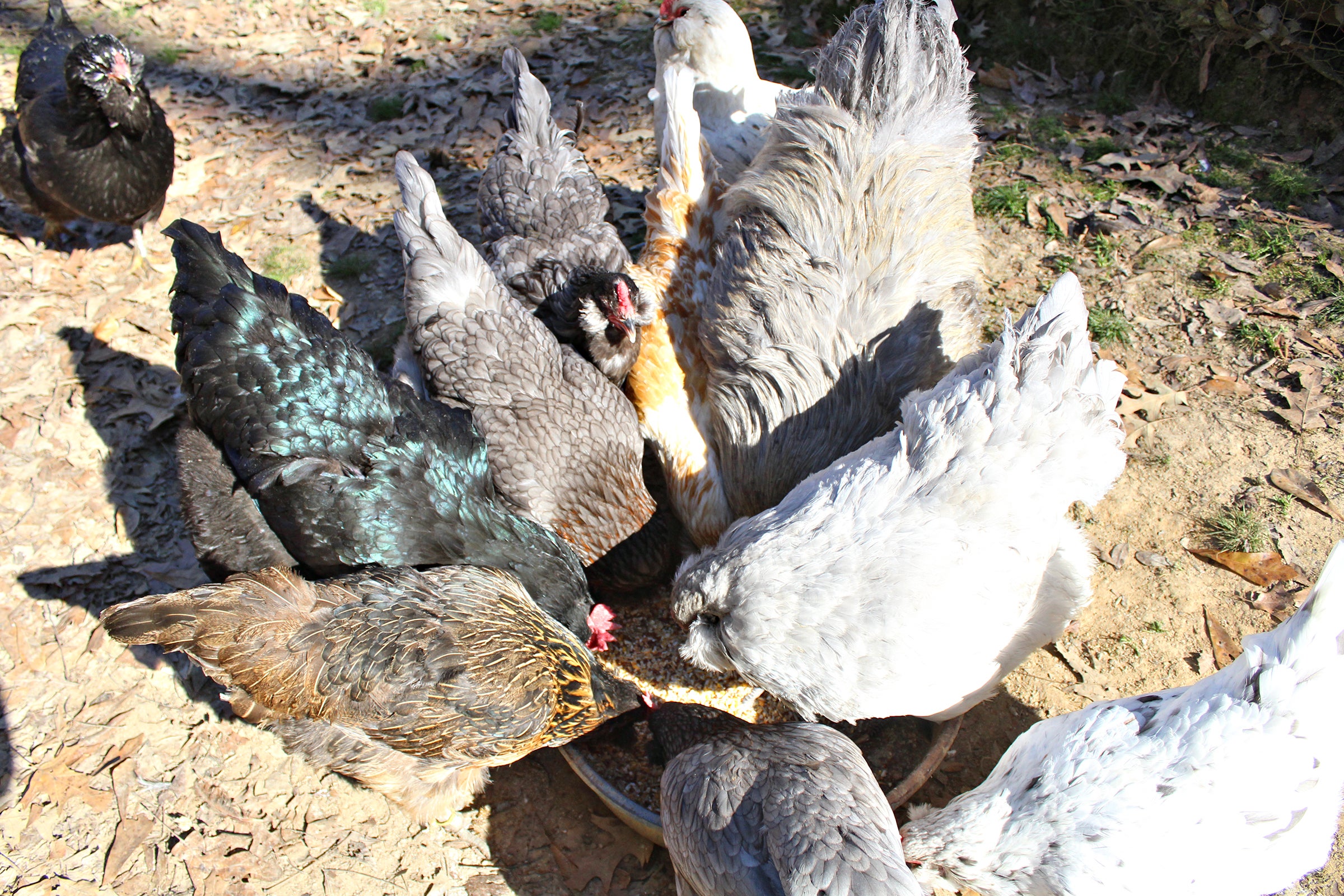‘Crazy Chicken Lady’: Cappy Martin’s hobby is hatching chicks
Published 1:43 pm Monday, March 21, 2022
While Cappy Martin chats in her driveway, a half-dozen dogs bark and chickens cluck from the nearby yard while a cat quietly strolls past and examines the scene.
At the entrance to the yard, a sign that says “Crazy Chicken Lady” is posted on the fence. The woman who posted it there seems to feel it’s an appropriate description.
“I’ve always enjoyed dogs and cats. I socialized seeing-eye dogs and worked with humane societies in three different states,” Martin said, before adding with a laugh, “Our house was a zoo. This house is a zoo.”
Backyard farm might be a more fitting description.
At her home in rural Warren County, Martin raises chickens. She collects the eggs for use and sale, has a couple dozen breeding pairs, and sells the chicks.
At any given time, she says, more than 100 chickens ranging from newborn chicks to mature roosters and hens are on the property clucking and pecking the day away.
“I have a hobby,” she says with a smile. “Last year I hatched almost 700 chicks.”
The 70-year-old Martin became interested in raising chickens about 13 years ago. She grew up in the Glenwood Circle neighborhood of Vicksburg, but her family had property in the county with plenty of animals around.
“I’ve always liked animals, and when I retired I decided I wanted to raise chickens,” she said. “I was self-taught. They’re not really hard. You worm them, feed them, and the rest is coop maintenance.”
As she learned the ins and outs of chicken maintenance, Martin went from a hobby farmer to a working farmer. She soon was breeding and raising them, and selling the surplus at co-ops and small animal sales in the area.
Online sales are banned by social media outlets, she said, so the bulk of her chicks are currently sold at a twice-monthly farmer’s market at Tractor Supply in Vicksburg.
Farmer’s Bounty, a loose-knit organization of farmers and craftsmen from around Central Mississippi, gather on the first and third Saturday morning of each month at the store on South Frontage Road. All of the goods and animals sold are handmade or raised locally.
“We have people from Natchez, Yazoo City, Jackson, that all come over. There’s never a fee to set up,” Martin said. “Tractor Supply is wonderful to us. If anybody asks for a pig, a goat or a rabbit, they usually give them my phone number.”
Over the years, Martin has tried to teach others about her hobby. She is part of the “Heritage Learning” group that teaches self-reliance skills and meets once a month at Goldie’s Trail BBQ restaurant in Vicksburg. She’s also been involved with Redwood Elementary School’s Farm Day to teach children about animal care.
Martin’s passion for raising her own animals is as much about being self-reliant, she said, as it is about having a hobby.
“If something bad happens, like a hurricane, you can be prepared and help your neighbors,” Martin said.
For those wanting to follow in her footsteps and raise their own chickens, Martin has plenty of advice. She sells her young chicks for about $25, but that’s only the start of the investment they require.
The most important — and difficult — thing about chicken ownership, Martin said, is making sure they stay safe. Much like people, it seems every type of animal enjoys the taste of chicken.
Having a quality pen made of livestock wire will keep predators out and the chickens safe. Although Martin lets her chickens roam freely during the day, their portion of the yard is separated from the area her dogs stay in by head-high fences made of wire and wood. The birds are returned to the coop each evening.
“You need to have a really strong coop or cage. Most people will lose birds in the first year to their neighbor’s dog, or raccoons, or possums. In the spring, buffalo gnats are deadly to chickens,” Martin said.
Most flocks are built around hens. They can lay eggs even without breeding, Martin said, and keeping roosters with them is a matter of personal preference.
Roosters can offer some security to the hens and the flock, but they can also be harmful if they have the wrong temperament.
“Sometimes you have a rooster that will be mean. They’ll chase children or go after the hens. You don’t need a rooster to have eggs. The only reason to have them is if you like their crowing, or they will protect the hens. They’ll fight to the death to protect the hens,” Martin said. “You can have a juvenile rooster that’s fine, and then all of a sudden his hormones kick in and you have to re-home him.”
Having the right kind of coop is also important. Rather than a designer coop that resembles a house, Martin stressed the importance of function over form.
“Here in the South we have simple cages,” she said, “Don’t look in the magazines and make a coop like they have up North, where it’s like a house. They like it cool, not hot. Cool is better. I tell people you go and sit in an outhouse for an hour on a hot day, and now you know how the chicken feels.”
Once the birds are happy, the next step is keeping them healthy. Buying good feed helps, but learning how to do some basic veterinary care on your own can save a lot of money.
“I can call the vet, but they’re not going to come out for one chicken,” Martin said. “I recommend worming them at least two or three times per year. Especially if you have an enclosed coop, it gets into their food and water. Chickens peck the ground, and that’s where worms live.”
Perhaps her most important piece of advice is realizing what you’re getting into. Some young chicks are purchased around Easter as presents for children, but quickly grow from cute fluffballs into full-grown birds.
In her driveway, Martin placed a half-dozen two-day-old birds in a plastic container right next to chicks that were two weeks old. The latter group was several times the size of the former.
“Everybody wants them to stay that size forever,” Martin said, pointing toward the baby chicks, “and they don’t.”
Martin is careful to caution anyone thinking of buying a chicken to take all of the factors into account. Raising birds requires some space and investment, and is not always for the squeamish. Properly cared for, they can live nearly as long as other pets — up to a decade. With the constant threat from even common animals like dogs and raccoons, however, their mortality rate is high.
For those taking the plunge, Martin said, there is a lot of joy to be found in raising them. Anyone interested, she added, can visit her at a Farmer’s Bounty sale and pull up a chair.
“I like to breed the chicks and see what I get — all the different colors and types,” she said. “I just enjoy it, and enjoy talking to people about it. I tell them come sit next to me and let’s talk chicken.”


